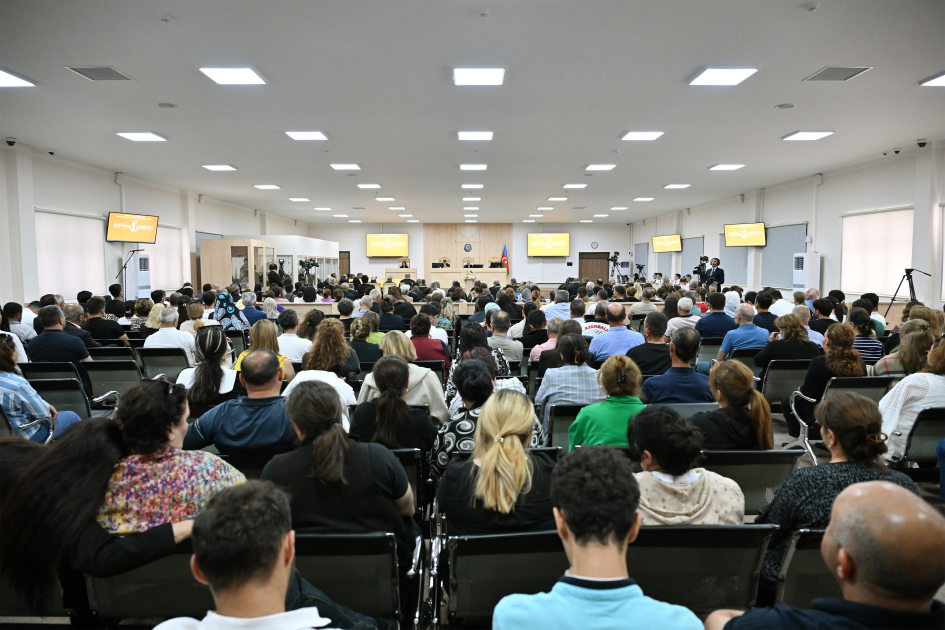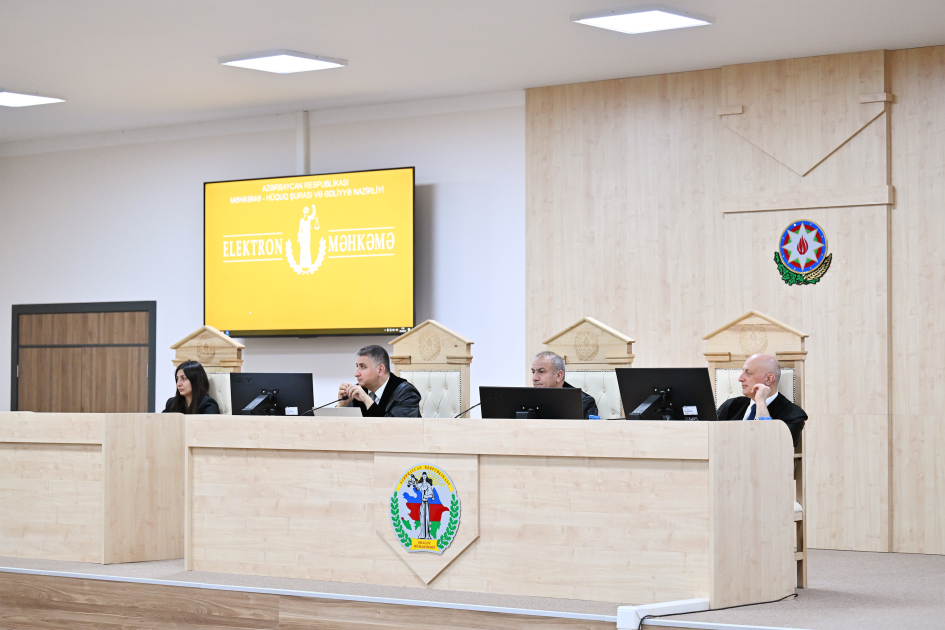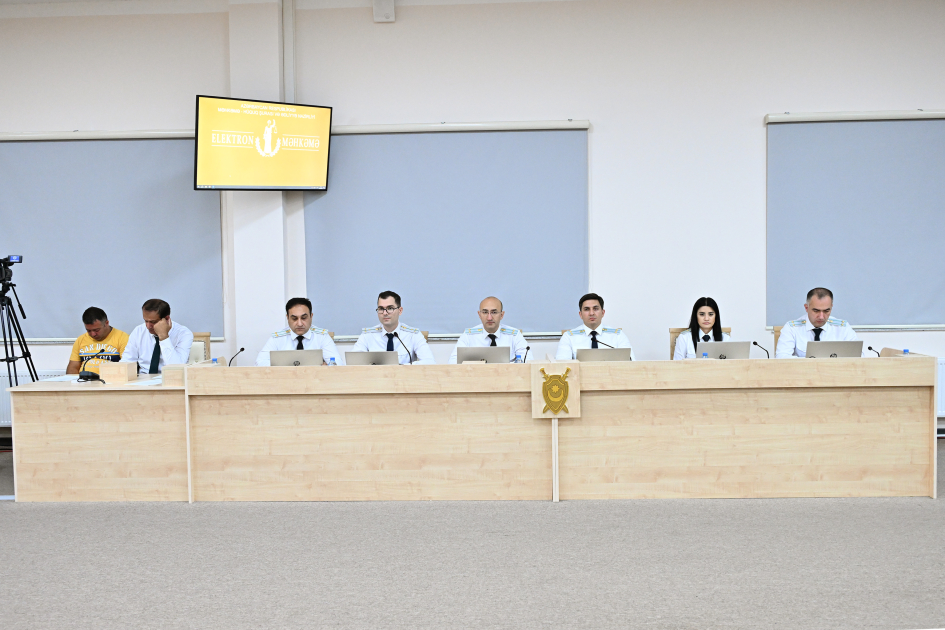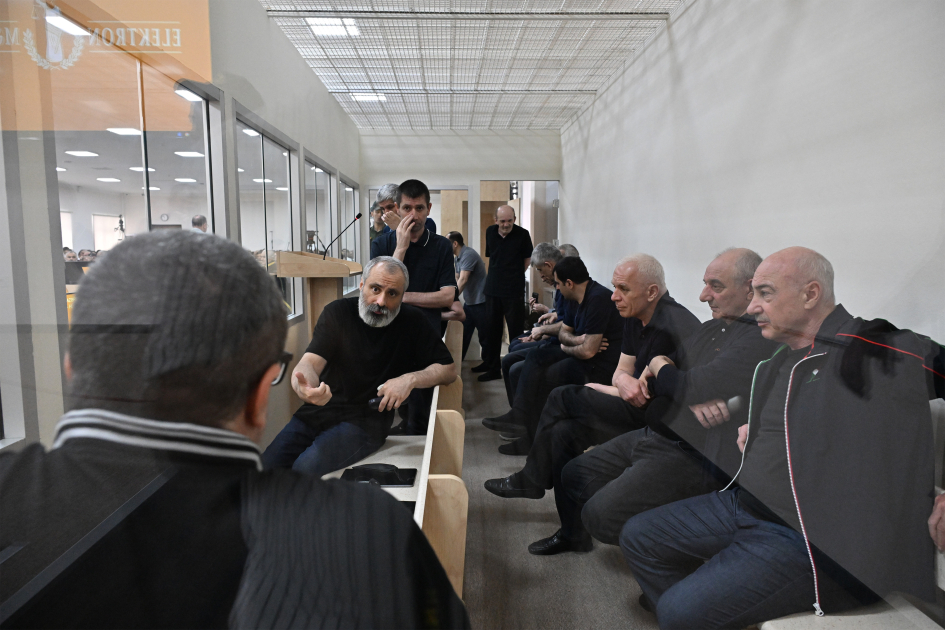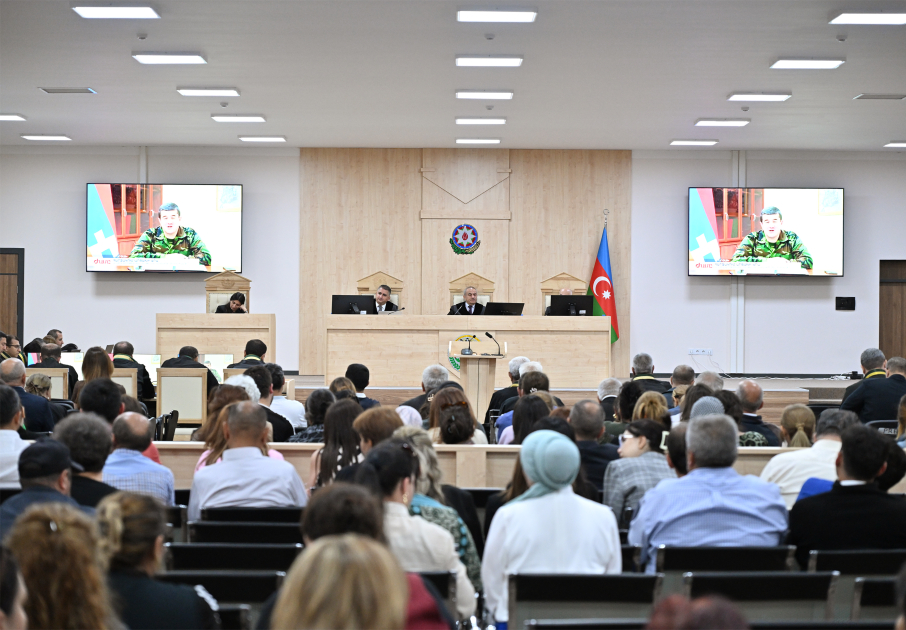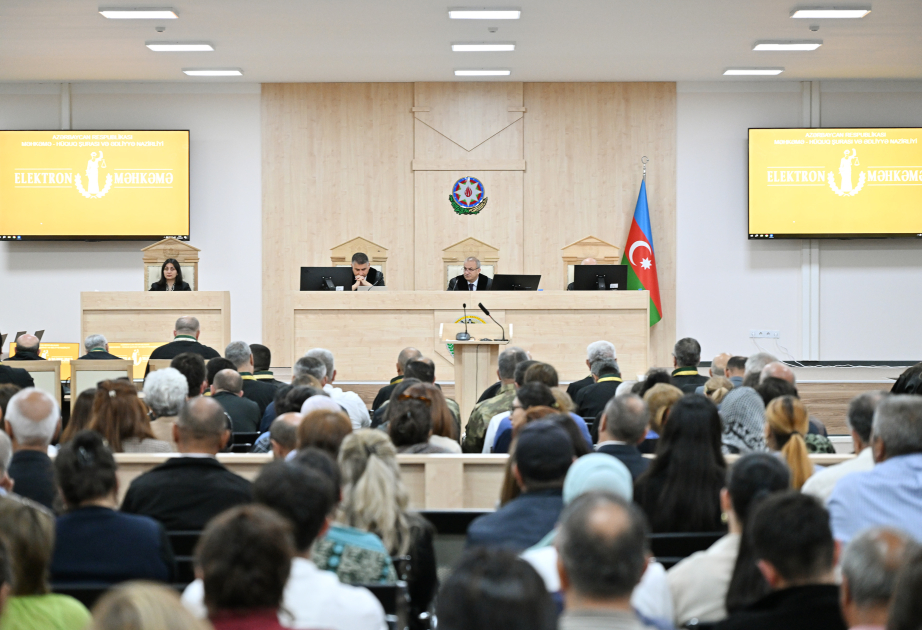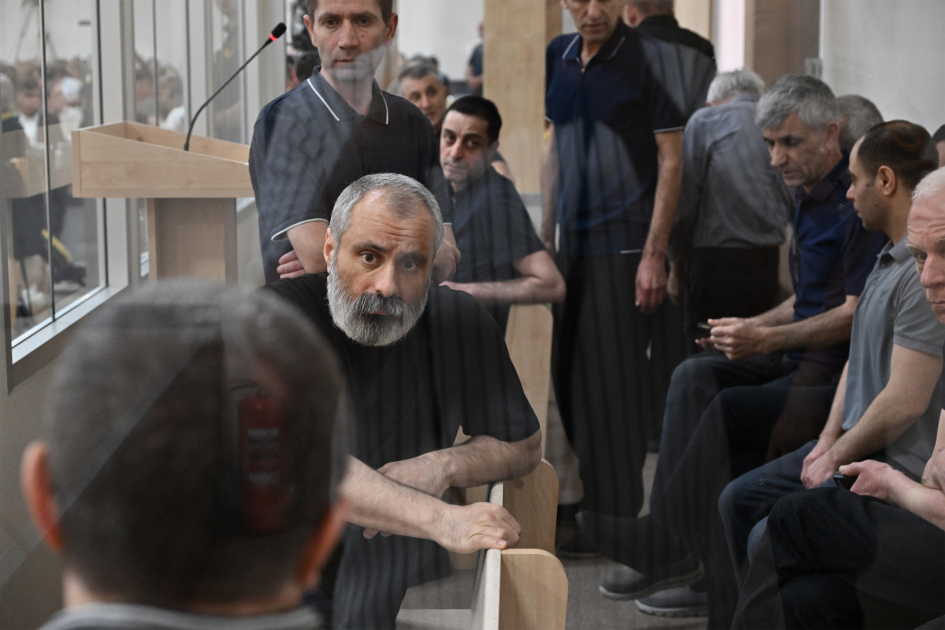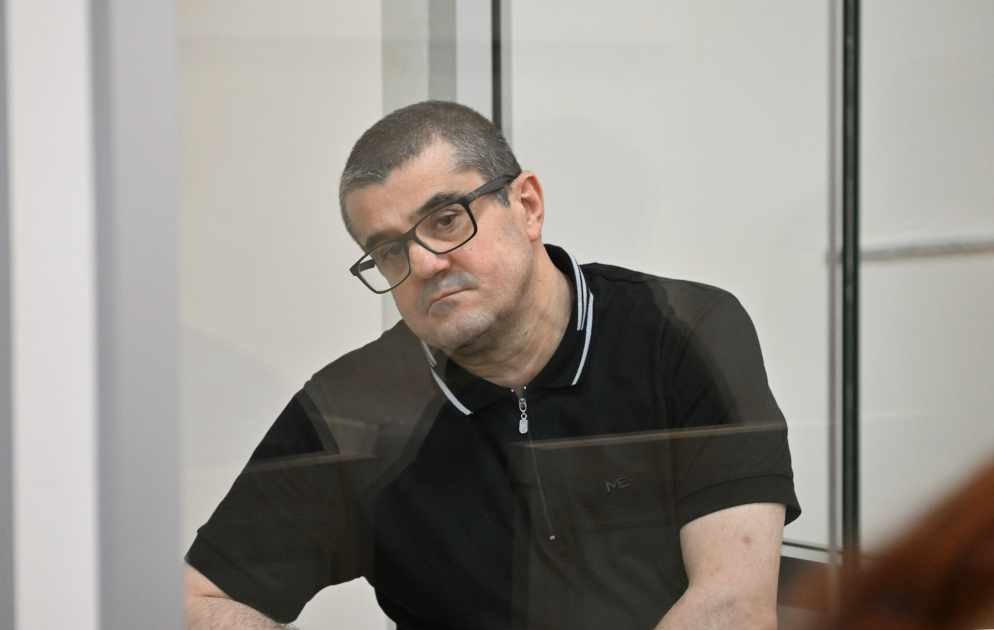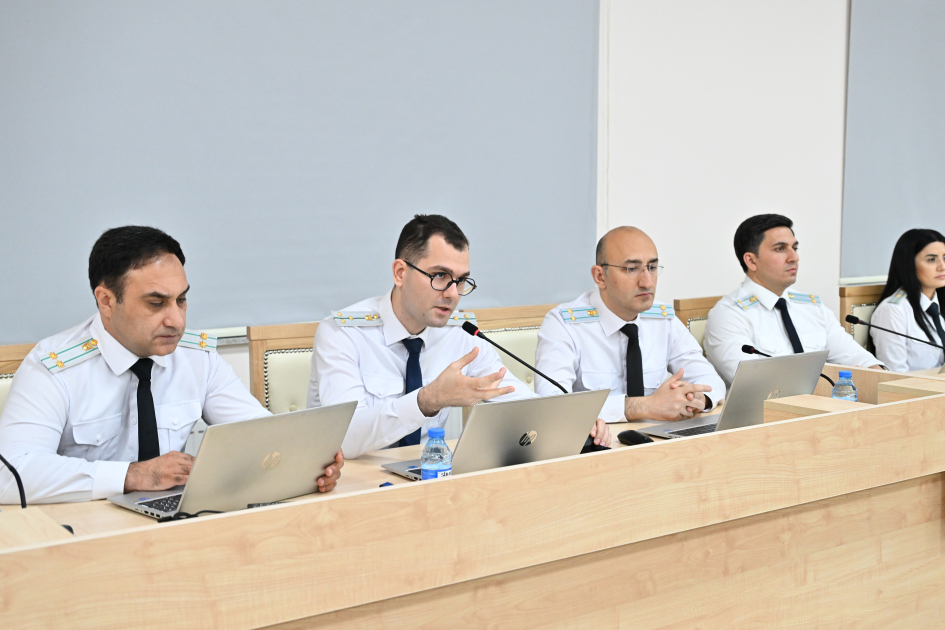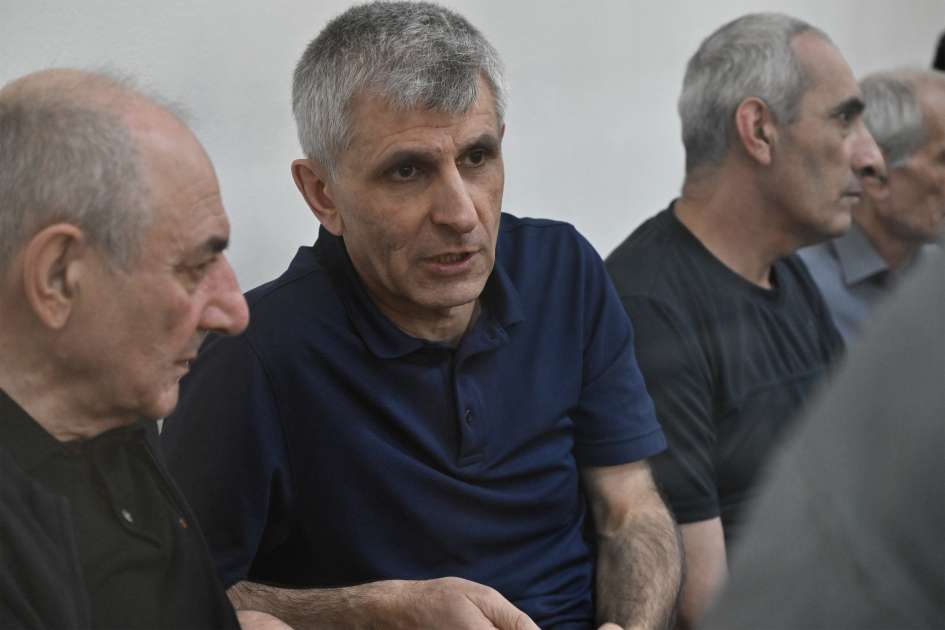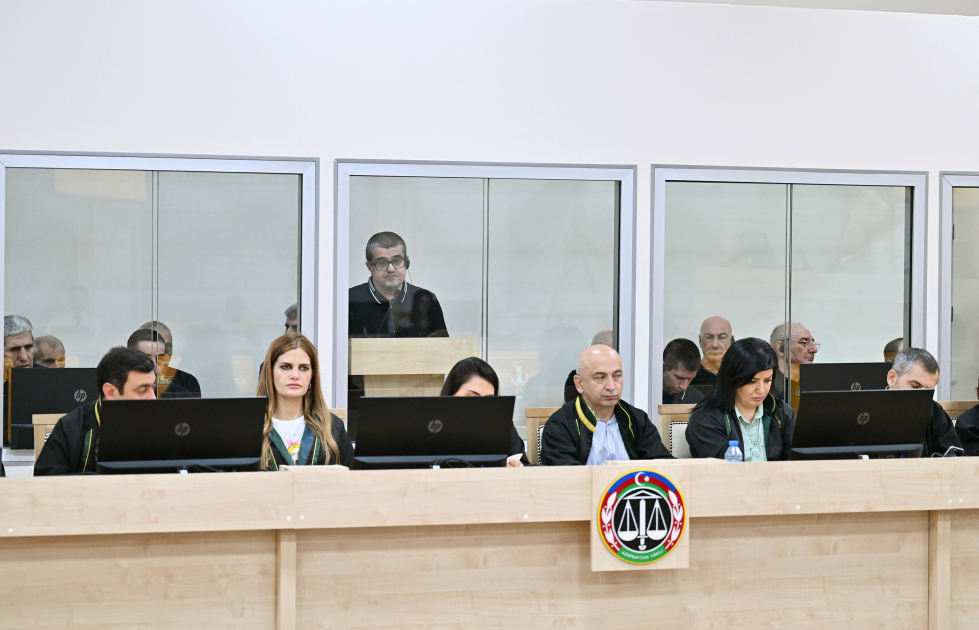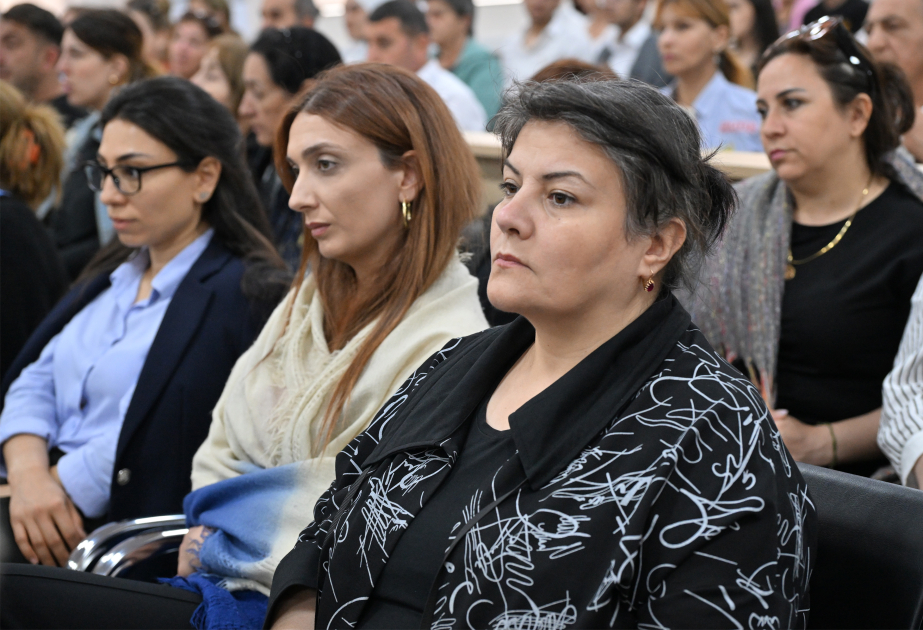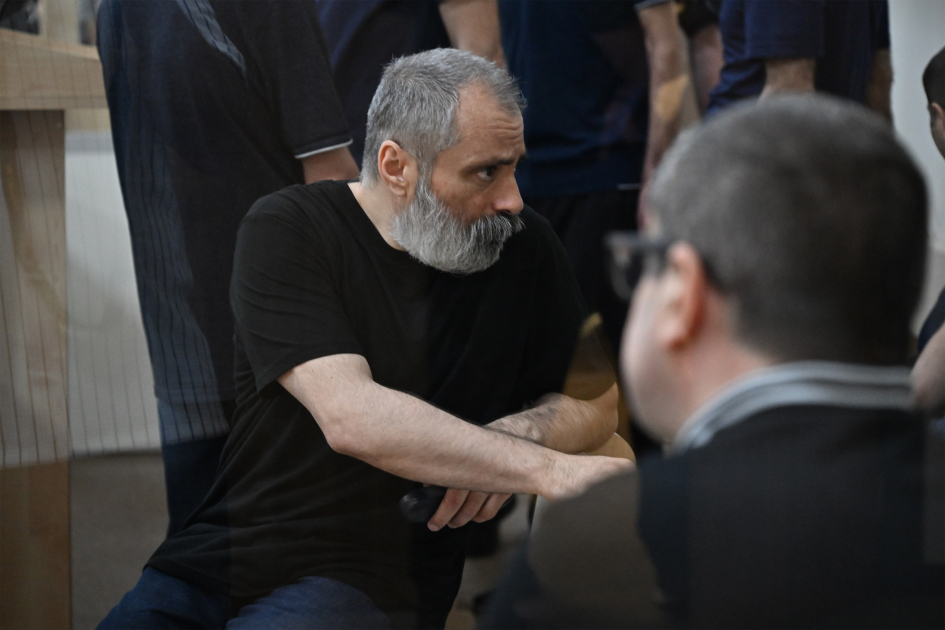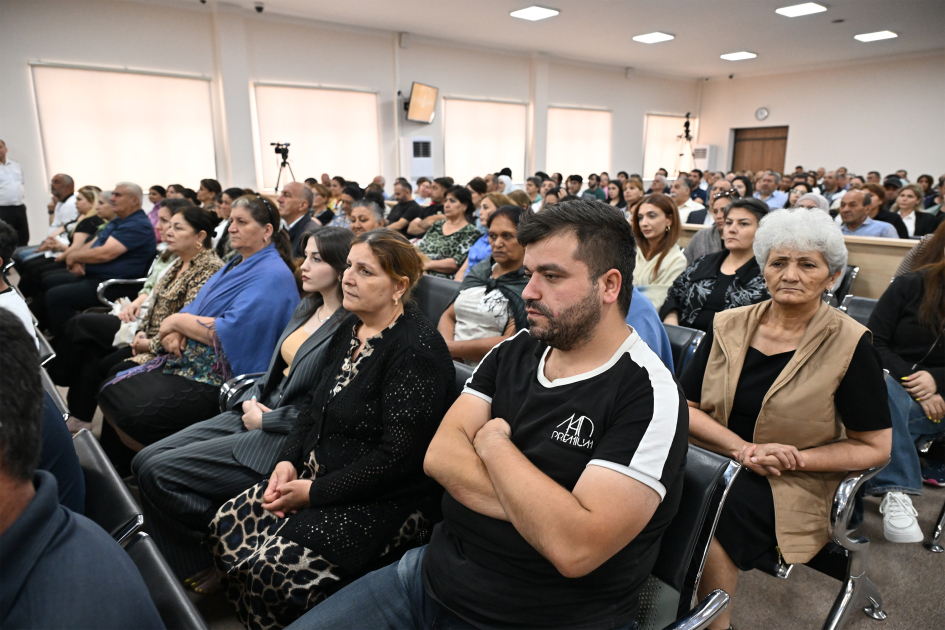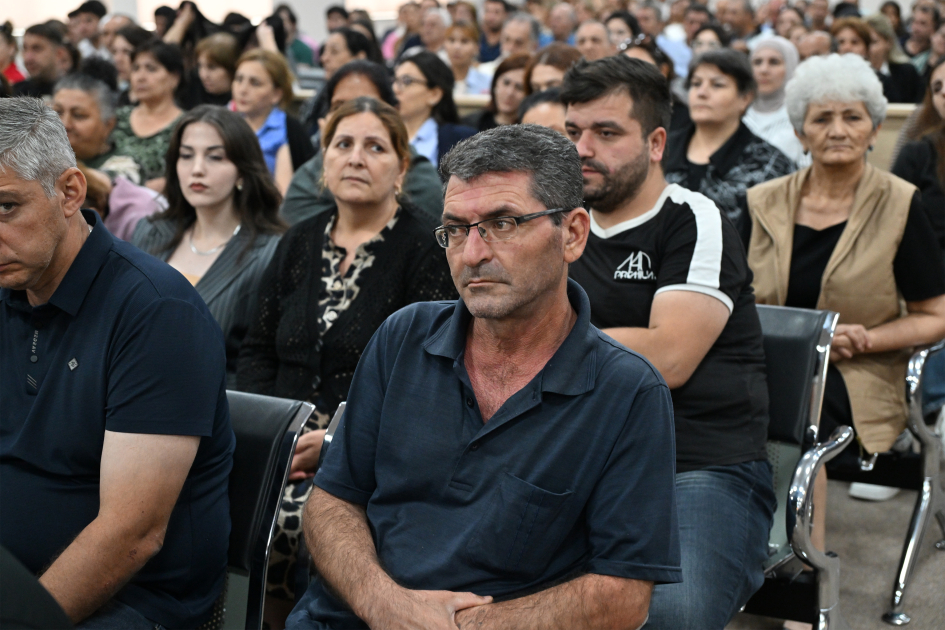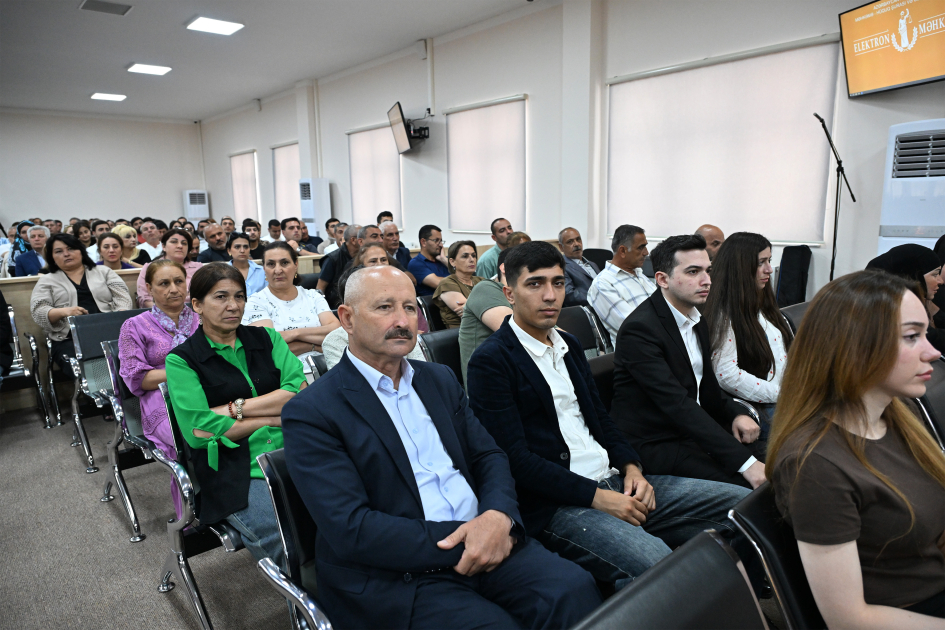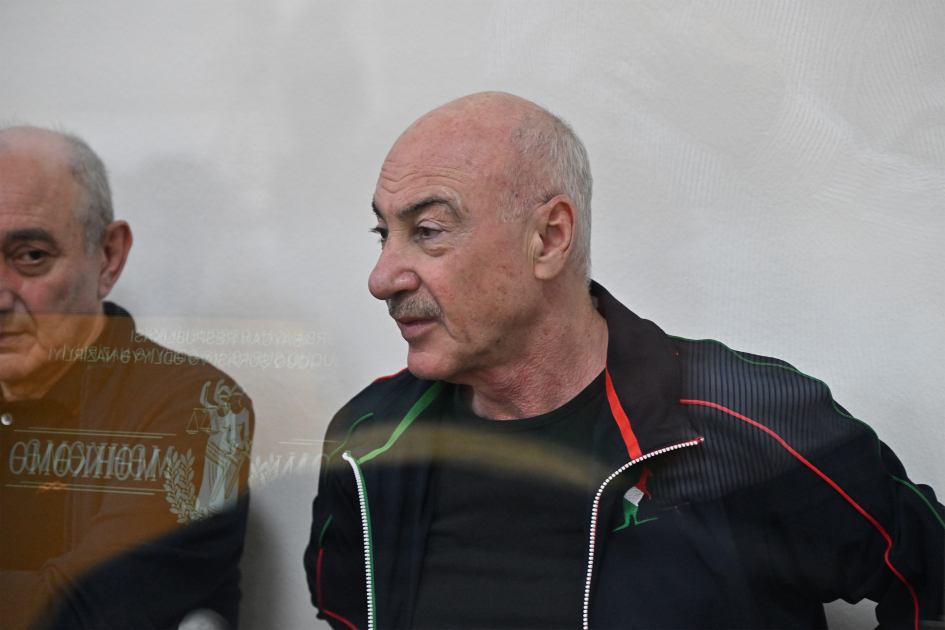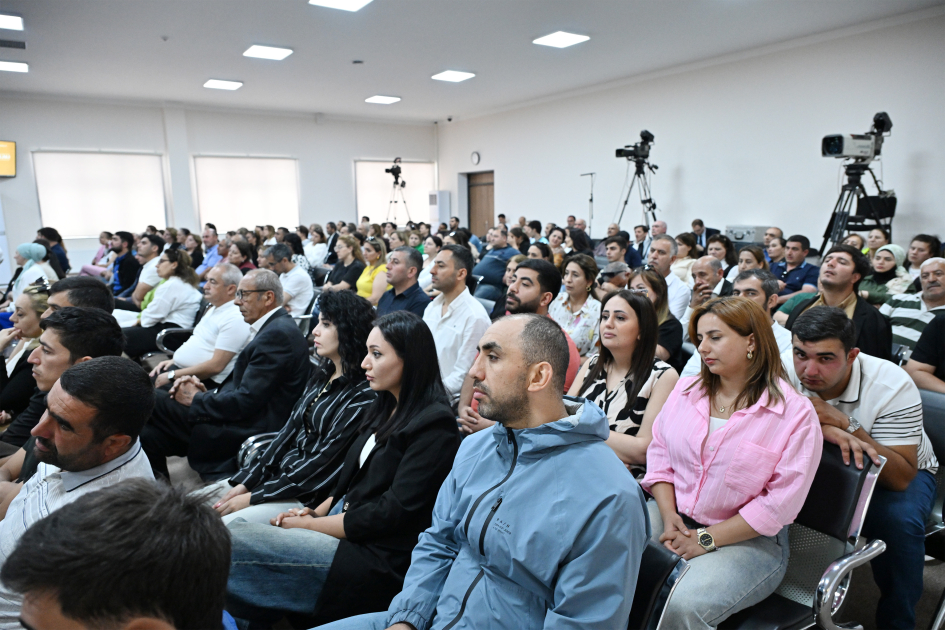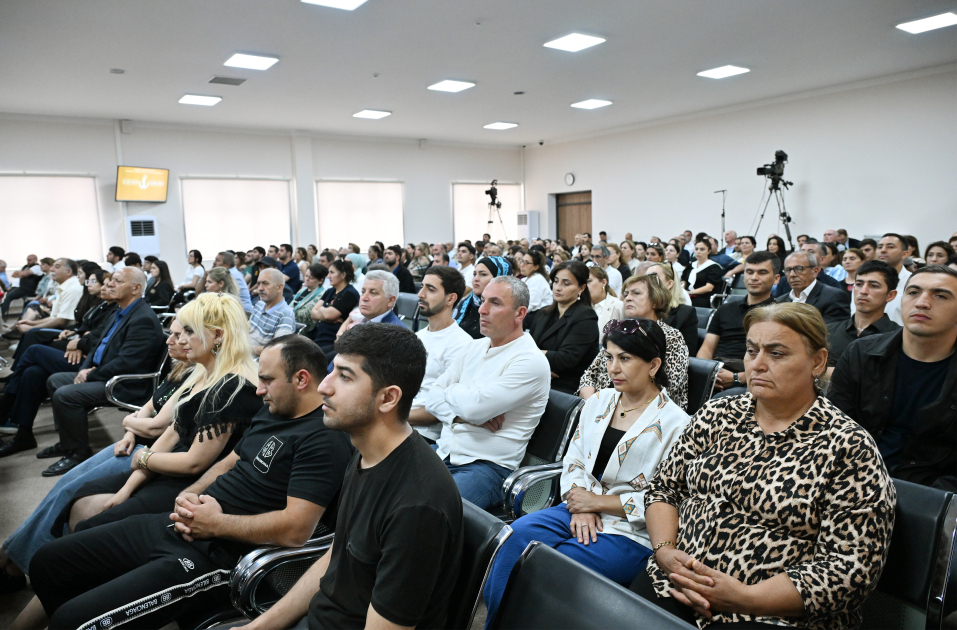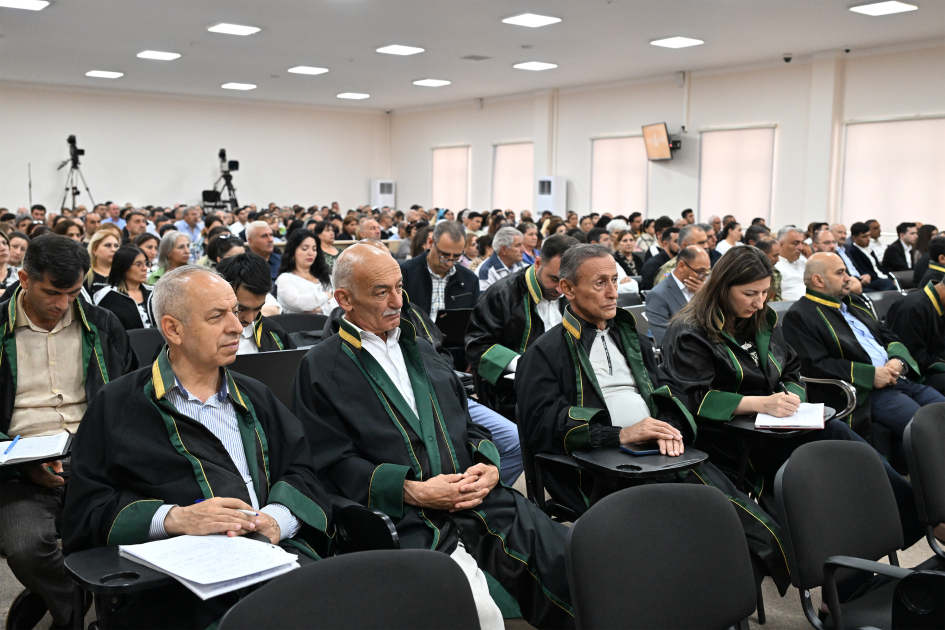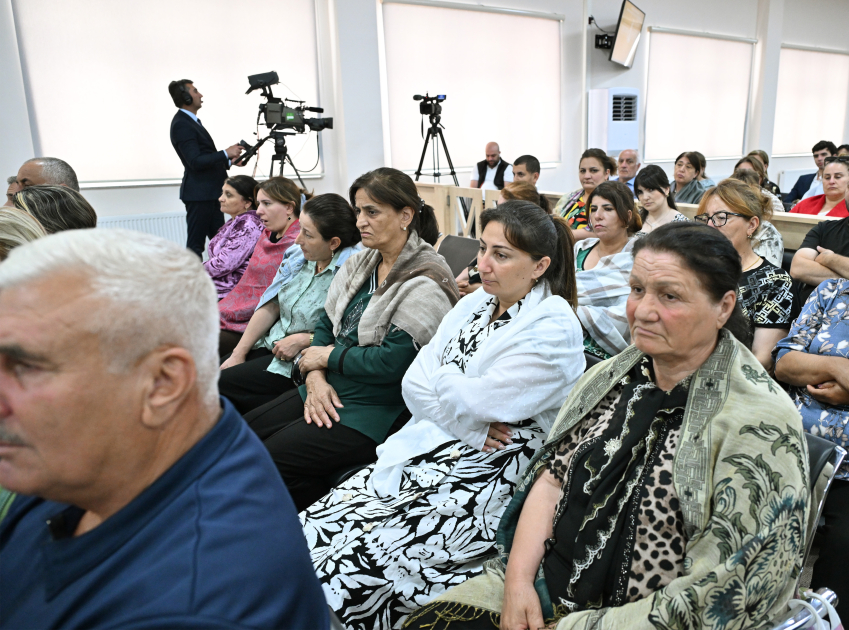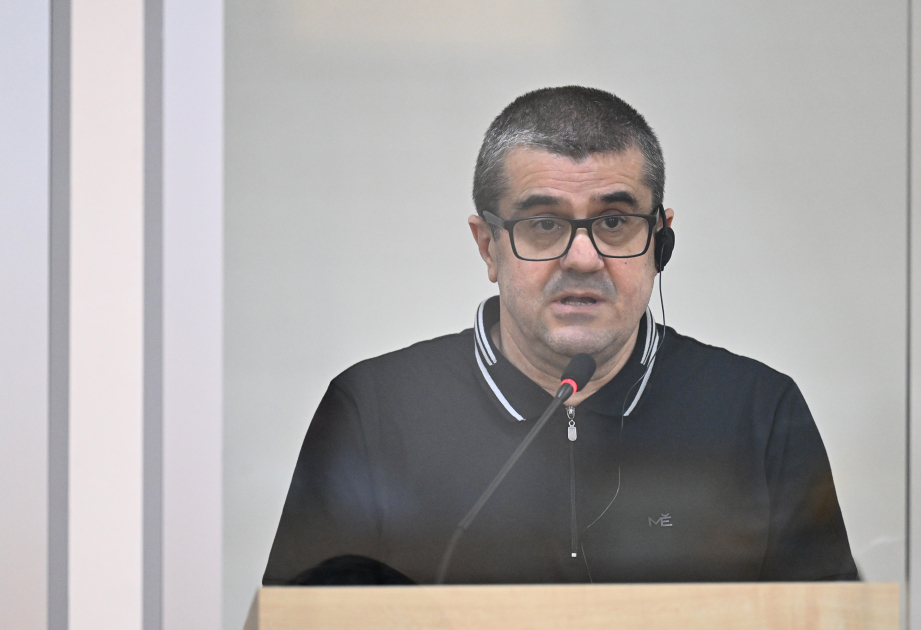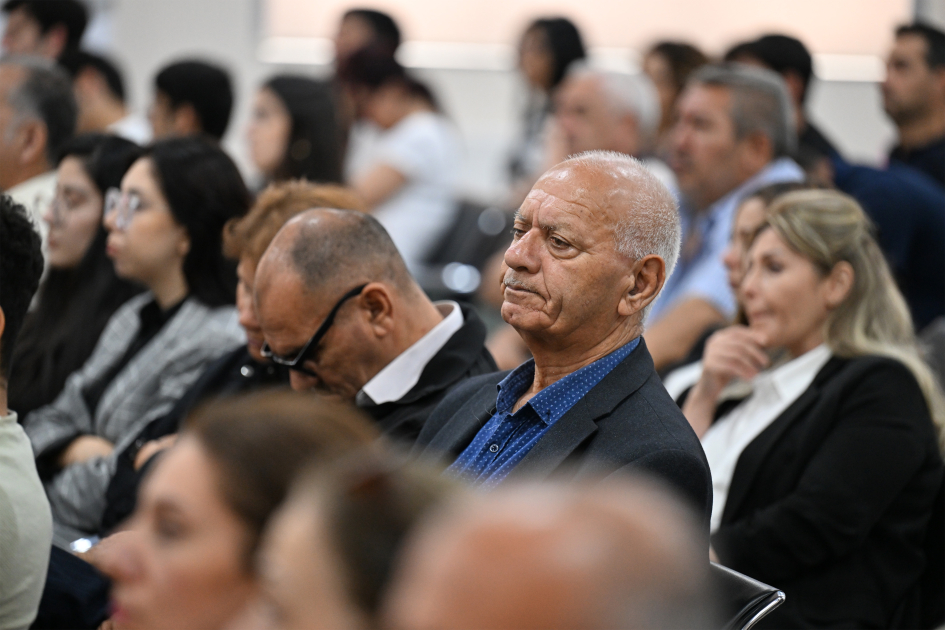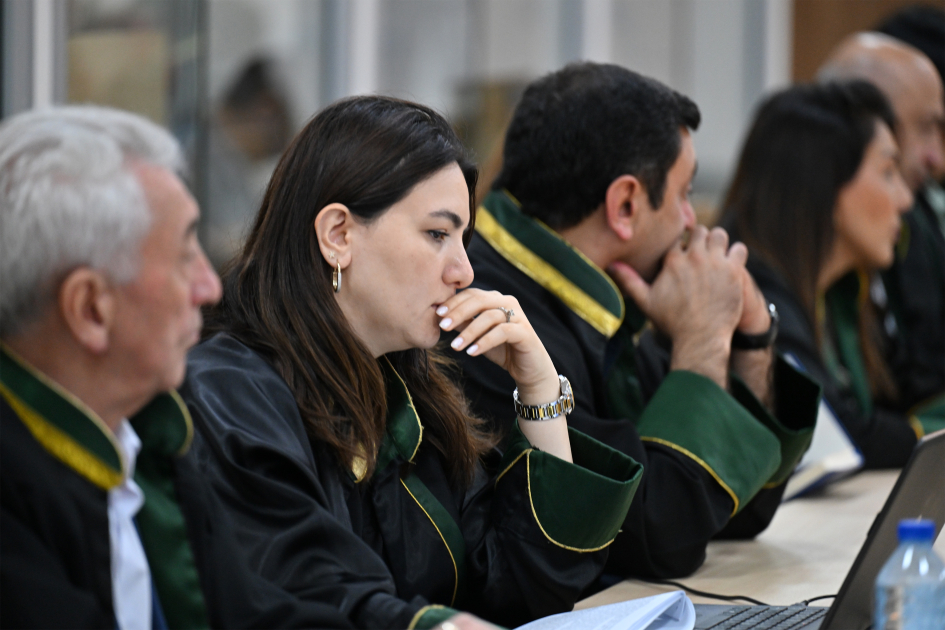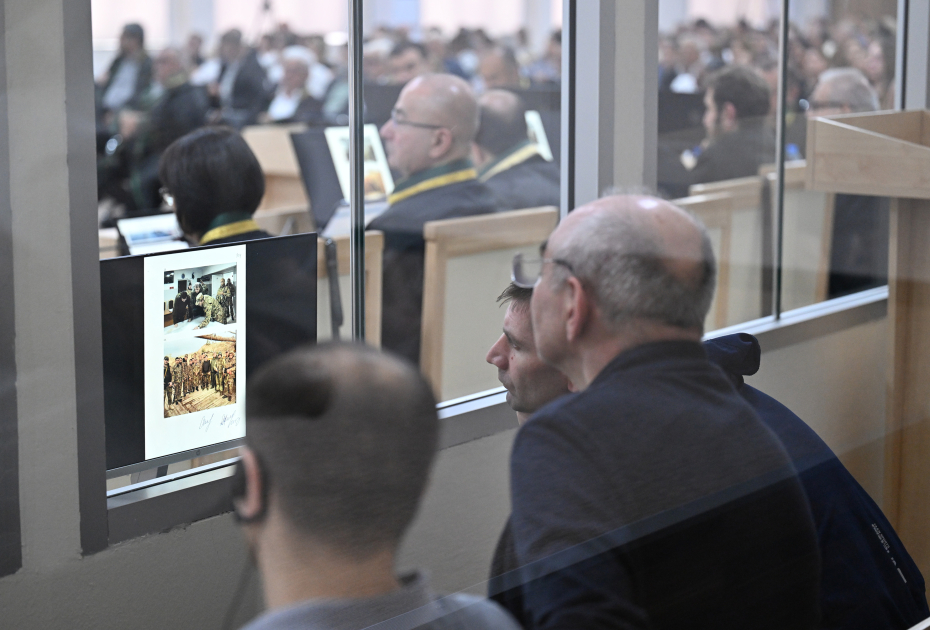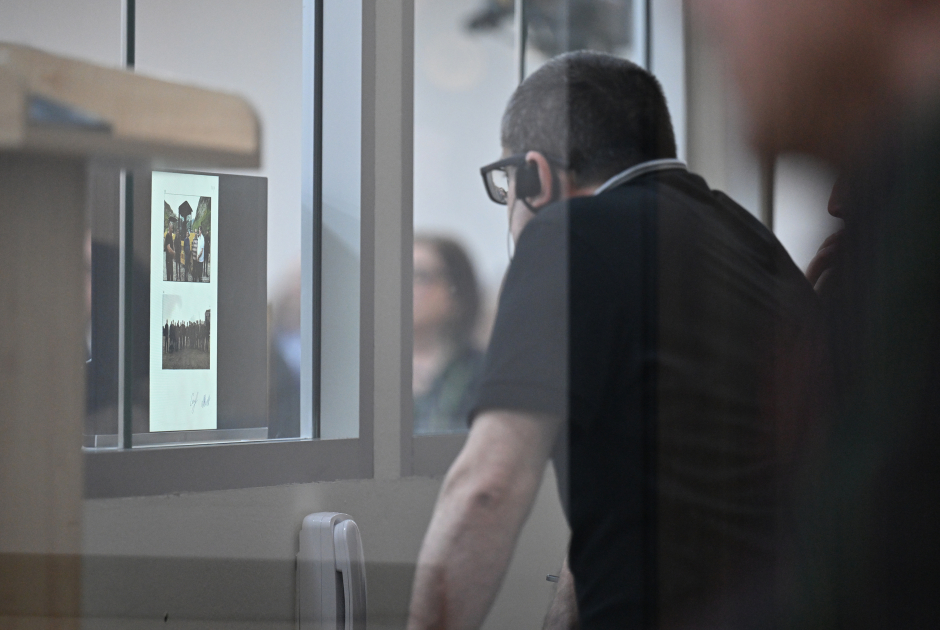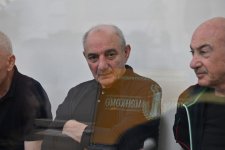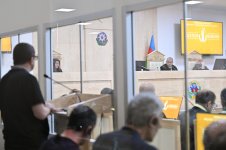BAKU, Azerbaijan, June 22. The open court hearing continued on June 23rd in the criminal case against Armenian citizens Arayik Harutyunyan, Arkadi Ghukasyan, Bako Sahakyan, Davit Ishkhanyan, David Babayan, Levon Mnatsakanyan, and others. They are accused of crimes against peace and humanity, war crimes including the planning and waging of aggressive war, genocide, violations of the laws and customs of war, as well as terrorism, financing of terrorism, forcible seizure of power, forcible retention of power, and numerous other crimes as a result of Armenia's military aggression against Azerbaijan, Trend reports.
The court hearing was held in the Baku Military Court, presided over by Judge Zeynal Agayev, with judges Jamal Ramazanov and Anar Rzayev (reserve judge Gunel Samedova). Each defendant was provided with an interpreter in their native language and legal counsel for their defense.
The defendants, their lawyers, some of the victims, their legal successors and representatives, as well as the state prosecutors, were present at the hearing.
During the court session, defendant Arayik Harutyunyan answered questions from the prosecutors. Responding to questions from Tugay Rahimli, Assistant to the Prosecutor General for Special Assignments, Harutyunyan stated that he was a member of the "Hayastan" All-Armenian Fund (established in 1992 by decree of Armenian President Levon Ter-Petrosyan - ed.), whose headquarters are located in Yerevan, and that he attended all meetings of the fund.
He claimed that the "Hayastan" Fund was engaged in charitable projects both in Armenia and in the self-proclaimed entity. "The fund implemented infrastructure projects in Karabakh. It was involved in the construction of schools and kindergartens, as well as other charitable projects," he added.
The defendant stated that funds for the fund were not collected in cash, but were transferred through banks.
Harutyunyan said that it did not matter whether the contractors carrying out the work with the funds allocated by the fund were from Armenia or the self-proclaimed entity: "Whoever won the tender, they carried out the work."
The defendant confirmed that the main connection between the formerly occupied sovereign territories of Azerbaijan and Armenia was via the two roads built with funds from the fund (the Yerevan-Gorus-Khankendi and Yerevan-Basarkechar-Khankendi highways) and added: "There were also roads in the southern direction, but these were mainly dirt roads and were not used as widely. There were no restrictions on the implementation of transportation and cargo transportation on the main roads. However, there were restrictions in some areas. For example, a restriction was imposed on the transportation of forest trees. Sanitary control measures were taken, but there were no special restrictions in other areas."
He stated that there were no restrictions on the transportation of military equipment on these roads either.
The defendant, also claiming that the fund's funds were not used during the Second Karabakh War, said: "During the war and in the following days, a lot of money was collected - approximately more than 100 million US dollars. It was all collected for housing construction."
Harutyunyan stated that after the 44-day war, the construction of several settlements was started with these funds, and several asphalt roads were built. However, the construction of the houses remained unfinished.
He also confirmed that people brought from Syria and Lebanon were illegally settled in the formerly occupied territories of Azerbaijan.
He added that some of the Armenian citizens living in the regions bordering Azerbaijan -- Gorus and Gafan regions of Armenia -- came to the then-occupied Zangilan, Gubadli, and Lachin regions and settled there illegally: "Because there were great opportunities to operate, especially in the agricultural sector, in those territories. The resettled people were mainly engaged in agricultural work. You know the geography of the Syunik region. There are no extensive opportunities to engage in agriculture there. In Zangilan, Gubadli, and Lachin regions, there were more opportunities in this area."
Harutyunyan said that, compared to those coming from other countries for illegal settlement, those coming from Armenia were not specially encouraged: "We did not hinder them. They themselves chose where to live and what to do."
He confirmed that people of Armenian nationality were subsequently illegally settled in the Lachin and Kalbajar regions: "This happened later. There were no Armenians living in the Lachin region before. As far as I know, the situation was the same in the Kalbajar region."
Harutyunyan also said that a settlement called "Arachamukh" consisting of approximately 30 houses was built in the Jabrayil region: "The construction of these houses was financed by the "Tufenkian" Foundation. The houses in Zabukh were built by the "Ari" Foundation."
He also said that a settlement called "Sydney" was established in Kalbajar, and the construction of about 25 houses was financed by the Armenian community in Australia.
Harutyunyan said that funds were allocated annually from the Armenian budget in the name of "interest-free credit" for the purpose of forming the budget of the self-proclaimed entity, but they had no role in financing the "army" of the regime: "The army" was financed separately (by Armenia - ed.). We did not participate in "army" matters."
Harutyunyan also answered the prosecutor's questions about the "banking system" of the self-proclaimed entity established in the territories of Azerbaijan formerly occupied by the Armenian armed forces. He said that he himself had previously worked in bank branches operating in the self-proclaimed regime. Harutyunyan said that "Artsakhbank," which was presented as the main "bank" of the self-proclaimed regime, was a bank registered by the Central Bank of the Republic of Armenia. He stated that the place of registration of that bank was the capital of Armenia. He added that the license for that bank was issued by the Central Bank of Armenia. However, its main branch operated in the city of Khankendi, which was under occupation at that time. That bank also had branches in the central areas of other formerly occupied territories of Azerbaijan.
"That bank had no advantages or privileges compared to other banks in Armenia. The Central Bank of Armenia also determined the discount rate in the bank," added A. Harutyunyan.
In addition, branches of other Armenian banks also operated in the formerly occupied Azerbaijani territories. A. Harutyunyan also said that the branches operated at a loss.
Then, Harutyunyan was asked questions by Vusal Aliyev, Senior Assistant to the Prosecutor General, about the companies "Frank Muller Group," "Vallex Group," "Zolotaya Zvezda" and "Base Metals," which is part of "Vallex Group," which illegally operated in the territories of Azerbaijan formerly under Armenian occupation. Harutyunyan said that these companies operated after 2008. The defendant said: "Base Metals" operated in the mining sector. Their activities mainly covered the years 2008--2013 related to the exploitation of the "Drombon" (Heyvalı - ed.) gold deposit."
Saying that "Base Metals" was the largest company operating in the occupied territories of Azerbaijan, the defendant added: "It had approximately 1,500 employees. The company paid 25-30 million dollars in taxes. The director of the company was Artur Mkrtumyan, and the owner was Valeriy Mejlumyan."
Harutyunyan said that "Zolotaya Zvezda" invested more than 30 million dollars in the Vejneli gold deposit in the Zangilan region, but the project was unsuccessful.
In response to questions about "Karabakh Telecom," the defendant said that the owner of the company was a citizen of Lebanon, that the company operated from 2001-2002 to 2023, and that it paid an average of 4-5 million dollars in taxes every year since 2008. According to him, this company was the second largest taxpayer of the self-proclaimed entity.
During the continuation of the court session, documents related to the time when Harutyunyan was the "head" of the self-proclaimed entity were examined, and he was asked questions in this direction. In one of the documents, he claimed that he had "awarded" soldiers who had damaged Azerbaijani tanks during the 2020 war.
According to another document, Harutyunyan says that the strikes on the city of Ganja were carried out on his instructions.
Answering the prosecutor's questions, the defendant stated that he did not give an order to bomb the city of Ganja: "I did not have such authority."
He recalled that the "army" of the self-proclaimed entity is an armed formation of the armed forces of the Republic of Armenia: "It did not have the authority to act independently. That formation did not have the right to obey us, to implement our instructions."
Harutyunyan also said that, in general, the "army" of the self-proclaimed entity did not have destructive weapons ("Smerch", Tochka U", etc. - ed.) in its arsenal: "I did not have information about which units and specifically who carried it out. I heard about the bombing of oil pipelines here."
Protocols on the obstruction of flights, as well as the detection of vehicles in Khankendi and Khojali containing equipment for jamming signals, a system for striking UAV signals, etc., received from "Azerbaijan Airlines" CJSC and other relevant institutions, and the examination of them were examined in court.
State prosecutor of the Prosecutor General's Office Vusal Abdullayev reminded Harutyunyan about the discovery of mass graves during construction work in those lands after Azerbaijan liberated its territories from occupation and asked him questions in this direction.
He "explained" the reason why mass graves were not discovered during the construction work carried out by Armenia and the self-proclaimed entity during the occupation period as follows: "All the construction work we did was a few percent of what Azerbaijan is doing now. That's why we didn't find it..."
The defendant confirmed that the deputy prime ministers, ministers, and deputies of Armenia came to the then-occupied territories of Azerbaijan during the 44-day war and named several of them. He stated that these persons were Ararat Mirzoyan, Suren Papikyan (the current Minister of Defense of Armenia - ed.) and others.
The court hearing will continue on June 30.
It should be noted that 15 defendants of Armenian origin are accused in the criminal case on numerous facts of crimes committed during the aggressive war waged by the Armenian state, including the aforementioned criminal association, on the territory of Azerbaijan in violation of domestic and international legal norms, for the purpose of military aggression against Azerbaijan, created under the direct leadership and participation of the Armenian state, officials of its state institutions, its armed forces and illegal armed formations, their written and verbal orders, instructions and guidelines, material, technical, and personnel support, centralized management, as well as under the strict control, as well as under the leadership, direct and indirect participation of Robert Sedraki Kocharyan, Serzh Azati Sargsyan, Vazgen Mikaeli Manukyan, Vazgen Zaveni Sargsyan, Samvel Andraniki Babayan, Vitali Mikaeli Balasanyan, Zori Hayki Balayan, Seyran Musheghi Ohanyan, Arshavir Surenovich Garamyan, Monte Charles Melkonyan and others.
The said persons, i.e. Arayik Vladimiri Harutyunyan, Arkadi Arshaviri Ghukasyan, Bako Sahaki Sahakyan, Davit Rubeni Ishkhanyan, David Azatini Manukyan, Davit Klimi Babayan, Levon Henrikovich Mnatsakanyan, Vasili Ivani Beglaryan, Erik Roberti Ghazaryan, Davit Nelsoni Allahverdiyan, Gurgen Homeri Stepanyan, Levon Romiki Balayan, Madat Arakelovich Babayan, Garik Grigori Martirosyan, Melikset Vladimiri Pashayan, are being charged under Articles 100 (planning, preparing, initiating and waging a war of aggression), 102 (attacking persons or organizations enjoying international protection), 103 (genocide), 105 (extermination of the population), 106 (enslaving), 107 (deportation or forced displacement of the population), 109 (persecution), 110 (enforced disappearance of people), 112 (deprivation of liberty contrary to international law), 113 (torture), 114 (mercenary service), 115 (violation of the laws and customs of warfare), 116 (violation of international humanitarian law during armed conflict), 118 (military robbery), 120 (intentional murder), 192 (illegal entrepreneurship), 214 (terrorism), 214-1 (financing terrorism), 218 (creation of a criminal association (organization)), 228 (illegal acquisition, transfer, sale, storage, transportation and possession of weapons, their components, ammunition, explosives and devices), 270-1 (acts threatening aviation security), 277 (assassination of a state official or public figure), 278 (forcible seizure and retention of power, forcible change of the constitutional structure of the state), 279 (creation of armed formations and groups not provided for by law) and other articles of the Criminal Code of the Republic of Azerbaijan.

